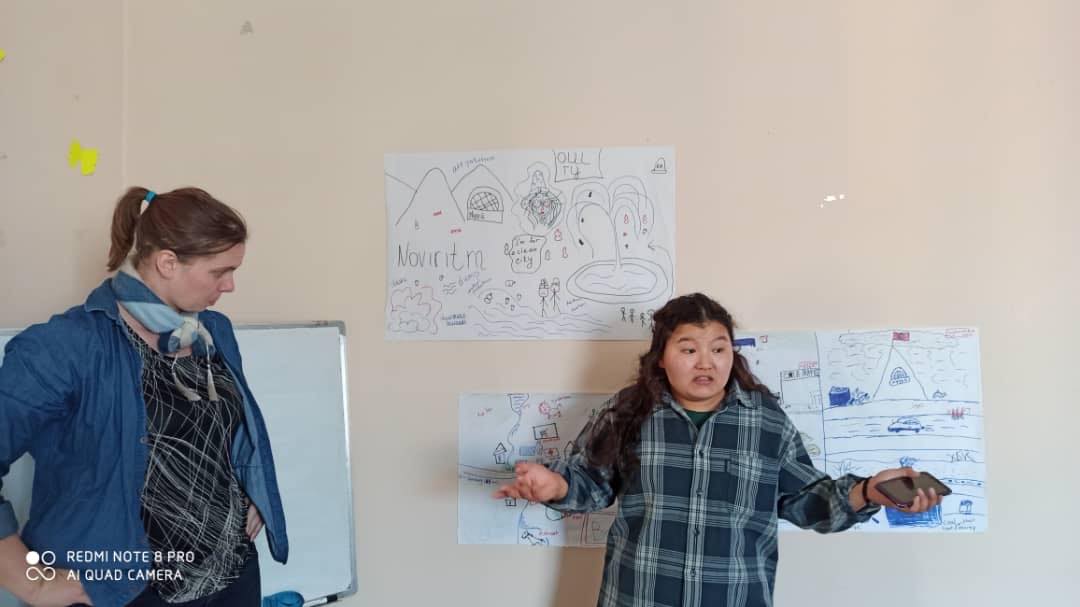What is the climate crisis and what can we do about? These are questions we explored during a two-week climate residency in Osh, Kyrgyzstan with members and staff of youth organization Novi Ritm. It was a fun, challenging, learning-filled, and eye-opening! To answer these questions we dag more deeply into what global climate change is, how different ecosystems are being impacted and what the consequences of that are on individual, community, societal and global levels. In this we took on a climate justice perspective, examining global inequalities and why some communities are being impacted more drastically than others. As the organization, who works with gender equality, we also made sure to have plenty of discussions about the role of feminism in climate justice: the importance of challenging patriarchy which has fueled environmental destruction, climate change exacerbating gender inequality and the need to have women active decision-making processes and solutions.
In one of the workshops we took time to reflect on our own connections to nature, how we’ve experienced the climate change in our own lifetimes, and how that has impacted us. Climate change can be a hard thing to grasp and accept as real, especially if we are experiencing it through secondary effects. Telling our own climate stories allowed us to feel the realities of climate change in our lives and gave us space to feel sad and overwhelmed, but also inspired to fight for climate justice and keep writing positive stories about human’s and our relationships with life and nature.
Learning about young climate activists and movements from around the world helped us in this. Talking about all the structural inequalities and systems that have been fueling the climate crisis is heavy and depressing! But seeing people, especially young people, stand up for equality and justice for all life on the planet reminds us of our own power. We learned about Greta Thurnberg and all the school strikes that are happening globally. It was exciting to see that there is a school strike registered in neighboring Kazakhstan! We also learned about Autumn Pelier and Mari Copeland, young activists who are fighting for water rights and autonomy in their communities, as well as young leaders from islands in the South Pacific, who are fighting for their homes not to be swallowed by the ocean. And while there is still too much inaction by governments and leaders of the world, we saw examples of action and gained tools to plan our own actions.
Most importantly, we talked about how taking action on local environmental issues, such as air pollution, trash and plastics pollution, and low water levels, is connected to solutions to the global climate crisis. One day we spent out in the city documenting local issues and collecting plastics – we wanted to try our hand at re-purposing plastics to see what kind of products we could make! It proved to be more difficult than we anticipated, but going out and collecting plastics was an inspiring and challenging experience.
In between sessions we also made time to be creative and have fun! One day after a workshop we put together and decorated Swedish gingerbread houses. And tasted them of course. There was karaoke, dancing, decorating for the holidays, and Kyrgyz and Russian lessons for me. One morning was dedicated to climbing and experience Sulayman-Too mountain, which that morning was encased in a cloud.
After the training, participants said that they felt more informed, understood that their actions can make a difference, and excited to continue with ideas that came up during the workshops. We are looking forward to seeing what future projects come out of these workshops!

